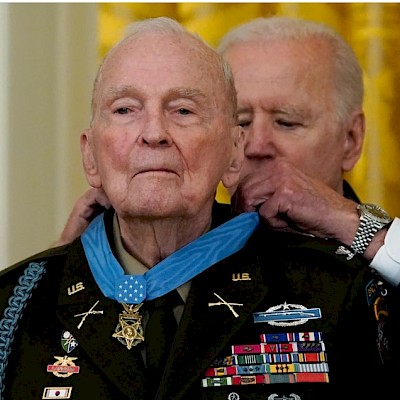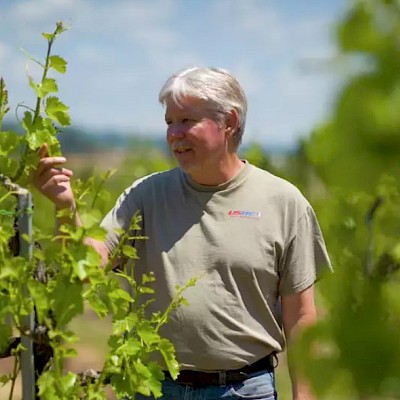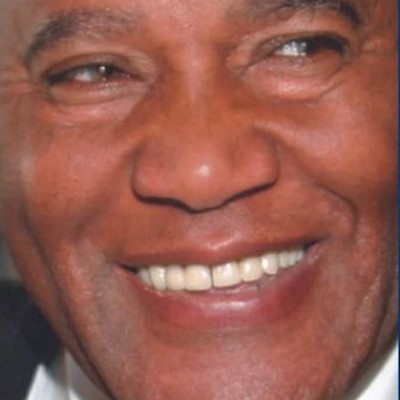
Ralph Puckett
Retired Col. Ralph Puckett Jr., an Army Ranger who received the Medal of Honor in 2021, 71 years after the valiant combat actions in the Korean War for which he was decorated, and who became one of the most honored soldiers in U.S. military history, died April 8 at his home in Columbus, Ga. He was 97.
The cause was complications from Parkinson’s disease, said his wife, Jean Puckett.
At age 94, Col. Puckett traveled to the White House to receive the Medal of Honor, leaving behind both his wheelchair and walker to stand straight as President Biden draped the military’s top award for valor around his neck. The decoration for Col. Puckett was years in the making, championed by close and influential friends in the military community who wanted to upgrade his Distinguished Service Cross. He had been presented with the DSC, the second-highest award for valor, soon after a fierce battle on a Korean hilltop.
Starting on Nov. 25, 1950, then-1st Lt. Puckett and fellow soldiers with the Eighth Army Ranger Company assaulted and took command of Hill 205, frozen high ground about 60 miles from the Chinese border. It was near the outset of what became known as the Battle of Chongchon River, in which senior U.S. commanders were caught by surprise by China’s full-scale entry into the Korean War.
To succeed in his objective, he was credited with deliberately braving enemy machine-gun fire to help his men locate and kill a Chinese sniper.
The Chinese launched swarming wave attacks of small-arms and mortar fire for hours in bitterly cold temperatures. The American soldiers were outnumbered 10 to 1, according to Army accounts, but Lt. Puckett, despite being wounded by a hand grenade, helped his men defeat five successive Chinese counterattacks that stretched into the early morning of Nov. 26.
On the sixth Chinese counterattack, the Rangers were overrun after Lt. Puckett was told that further artillery fire was unavailable to support them. He and his men engaged in hand-to-hand combat, and Lt. Puckett suffered additional wounds from mortars that left him unable to move. He ordered his soldiers to abandon him to enable them to have a better chance of withdrawing alive.
Two privates first class, Billy G. Walls and David L. Pollock, carried him to safety. They later received the Silver Star for their valor in saving him.
In an oral history project, Lt. Puckett recalled seeing Chinese soldiers attacking U.S. service members with bayonets 15 yards away from him when Walls and Pollock arrived by his side. He said that he was glad the men disobeyed his order to leave him.
“I wouldn’t be talking to you today,” Lt. Puckett said. “They saved my neck.”
For 18 years beginning in 2003, retired Army Lt. Col. John Lock, a historian who had written extensively on the Rangers, sought to have Col. Puckett recognized with the Medal of Honor.
In 2021, Jean Puckett told The Washington Post that her husband felt the Distinguished Service Cross was “honor enough,” but Lock and other members of Col. Puckett’s immediate family wanted to see the effort through. It required extensive research on what happened during the battle and the Army reassessing whether Col. Puckett’s actions deserved the Medal of Honor.
Among those who advocated Col. Puckett’s Medal of Honor were Sen. John McCain (R-Ariz.) and some of the Army’s top officers, including Gens. Joseph Votel and Stanley McChrystal, according to documents previously reviewed by The Post. Both generals had encountered Col. Puckett as Rangers.
At the White House ceremony, Biden recalled with a smile that Col. Puckett wondered if it would be possible to mail him the Medal of Honor, rather than holding an event with fanfare.
“Korea is sometimes called the ‘Forgotten War,’ but those men who were there under Lieutenant Puckett’s command, they will never forget his bravery,” Biden said during the White House ceremony in 2021. “They will never forget that he was right by their side for every minute of it.”
Col. Puckett, in remarks at the Pentagon that week, called for unity in the United States.
“While we have many enemies of this country today who want to see us fall, there’s no greater enemy than ourselves,” he said. “We have divided ourselves into tribes and closed our ears to all who would not think we would do what we needed to do.”
alph Puckett Jr. was born in Tifton, Ga., on Dec. 8, 1926. His father ran an insurance business and wholesale grocery, and his mother was a homemaker. He graduated from the Baylor School, a preparatory school in Chattanooga, Tenn., and then in 1949 from the U.S. Military Academy at West Point, N.Y., where he was captain of the boxing team. War broke out in Korea the next year.
His deployment in Korea ended prematurely with his injuries. After returning to the United States, he convalesced at a hospital at Fort Benning, Ga., where he met his future wife, Jean Martin. They married Nov. 26, 1952 — two years to the day after he was nearly killed.
After healing from his wounds, Col. Puckett returned to duty and held assignments in Georgia, at West Point and in West Germany. In 1967, he deployed to Vietnam as a lieutenant colonel with the 101st Airborne Division and was awarded a second Distinguished Service Cross. That honor was for landing by helicopter during an active firefight, maneuvering through a heavily mined area, and then personally occupying a foxhole and braving enemy fire throughout the night on Aug. 13, 1967.
“He heard cries for help during an intense mortar barrage later that night and dashed through a hail of flying shrapnel to give aid,” according to a copy of his award citation. “He personally carried the two wounded soldiers back to safety and used his skill and experience as a truly professional soldier to treat their wounds. When rescue helicopters came in, he repeatedly refused extraction for himself and directed that the casualties be evacuated.”
His other decorations included two awards each of the Silver Star and Bronze Star Medal, and five awards of the Purple Heart, according to his Army biography. Combined, the decorations make him among the most decorated soldiers in U.S. military history, Lock said.
In addition to his wife, survivors include two children, Martha Lane Wilcoxson and Thomas M. Puckett; six grandchildren; and four great-grandchildren. Another daughter, Jean Raney, died in 2004.
Col. Puckett retired from the military in 1971, then spent years working for Outward Bound, a nonprofit focused on outdoor education. When the Army Ranger Hall of Fame was established in 1992 at Fort Benning (renamed Fort Moore last year), Col. Puckett was a member of the inaugural class.
Well into his 80s, he hiked training ranges at Benning and mentored younger soldiers. He stressed the need for Rangers not to talk down to other soldiers in the Army, Votel said.
“He always reminded me: Show your class. Show your civility. Don’t let things get you down and distract you from your mission,” Votel said.
•
Remembering Ralph Puckett
Use the form below to make your memorial contribution. PRO will send a handwritten card to the family with your tribute or message included. The information you provide enables us to apply your remembrance gift exactly as you wish.




